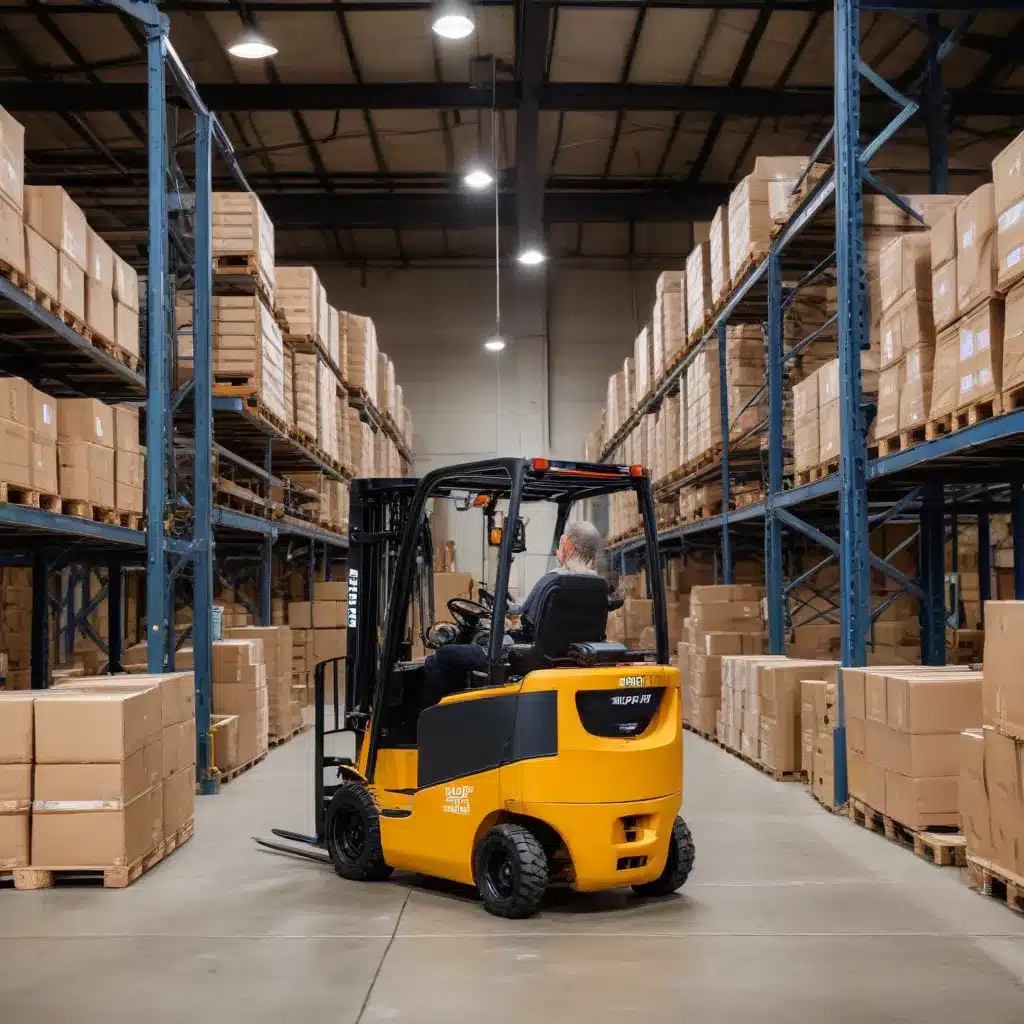
As the global landscape shifts toward greater environmental consciousness, the warehousing and logistics industry is at the forefront of embracing sustainable practices. One key technology that is revolutionizing this transformation is the electric forklift – a versatile, emission-free solution that is redefining operational efficiency and environmental stewardship.
In this comprehensive article, we’ll delve into the compelling advantages of electric forklifts and how they are empowering warehouses to enhance productivity while reducing their carbon footprint.
The Rise of Electric Forklifts: Addressing Sustainability Challenges
Warehouses and distribution centers have long been the backbone of modern supply chains, but their reliance on traditional internal combustion engine (ICE) forklifts has come with significant environmental drawbacks. Diesel-powered forklifts contribute to air pollution, greenhouse gas emissions, and the costly management of hazardous fuels and fluids.
Enter the electric forklift – a game-changing solution that addresses these sustainability challenges head-on. Powered by advanced battery technologies, electric forklifts produce zero direct emissions, eliminating the need for toxic fuel handling and storage. This not only reduces the environmental impact but also enhances worker safety and well-being within the warehouse setting.
Moreover, electric forklifts are highly efficient, with energy conversion rates ranging from 40% to 60%, significantly outperforming the typical 25% efficiency of ICE vehicles. This improved energy efficiency translates to extended operating times and reduced power consumption, ultimately driving down operational costs.
Powering the Sustainable Warehouse with Electric Forklifts
As warehouses strive to enhance their sustainability credentials, the adoption of electric forklifts has become a strategic priority. These versatile machines offer a range of benefits that are transforming the way warehouses approach power management and energy optimization.
Increased Productivity and Uptime
One of the key advantages of electric forklifts is their ability to enhance productivity and uptime within the warehouse. Unlike traditional lead-acid batteries, which require lengthy charging times and frequent swapping, advanced lithium-ion (Li-ion) and Thin Plate Pure Lead (TPPL) battery technologies found in many electric forklifts offer faster charging and opportunity charging capabilities.
This means that operators can quickly recharge their forklifts during short breaks or lulls in activity, minimizing downtime and maximizing operational efficiency. Additionally, these battery solutions often boast longer runtimes and reduced maintenance requirements, further boosting the overall productivity of the warehouse.
Optimized Energy Management
Integrating electric forklifts into a warehouse’s energy landscape requires a holistic approach to power management. By partnering with industry experts, warehouse managers can leverage data-driven tools and advanced software to right-size their battery and charger fleets, ensuring optimal performance and cost savings.
Through comprehensive power studies and energy consultations, warehouse operators can gain valuable insights into their energy consumption patterns, identify areas for improvement, and implement customized solutions to enhance efficiency. This can include the strategic deployment of high-performance Li-ion or TPPL batteries, as well as the installation of smart charging infrastructure to minimize peak power demands and reduce overall energy costs.
Sustainable and Safe Operations
Beyond the productivity and energy management advantages, electric forklifts offer significant environmental and safety benefits that are crucial for the modern, sustainable warehouse.
With zero direct emissions, electric forklifts eliminate the need to handle and store hazardous fuels, reducing the risk of spills, fumes, and other safety hazards. This not only protects the well-being of warehouse workers but also contributes to a cleaner, healthier work environment. Furthermore, the absence of combustion engines means reduced noise pollution, creating a more comfortable and productive workspace.
Aligning with corporate sustainability programs, electric forklifts are increasingly being integrated into warehouses as part of a holistic approach to reducing carbon footprints and minimizing environmental impact. By leveraging renewable energy sources to power their electric fleets, warehouse operators can further enhance the sustainability of their operations and demonstrate their commitment to environmental stewardship.
Navigating the Transition to Electric Forklifts
Making the switch to electric forklifts can seem daunting, but with the right guidance and industry expertise, warehouse managers can seamlessly integrate these advanced technologies into their operations.
One key factor in a successful transition is partnering with trusted forklift dealers and energy consultants who can provide comprehensive support. These industry experts can conduct thorough power studies, analyze energy usage patterns, and recommend the most suitable electric forklift models and battery solutions to meet the unique needs of the warehouse.
Moreover, they can assist in the installation and maintenance of charging infrastructure, ensuring that the warehouse’s power systems are optimized for maximum efficiency and uptime. By leveraging these valuable resources, warehouse managers can feel confident in their ability to navigate the transition and realize the full potential of electric forklifts.
Embracing the Future of Sustainable Warehousing
As the warehousing and logistics industry continues to evolve, the adoption of electric forklifts is poised to play a pivotal role in driving sustainable growth and operational excellence. By harnessing the power of these emission-free, energy-efficient machines, warehouse operators can unlock a new era of productivity, cost savings, and environmental stewardship.
Through strategic partnerships, data-driven insights, and a commitment to innovation, warehouses can seamlessly integrate electric forklifts into their operations, paving the way for a more sustainable and prosperous future. As the industry continues to embrace this transformative technology, the benefits of the electric forklift advantage will only become more pronounced, solidifying its position as a driving force in the sustainable warehouse of tomorrow.
To explore the latest electric forklift models and learn more about powering your warehouse’s productivity, visit Forklift Reviews today.

